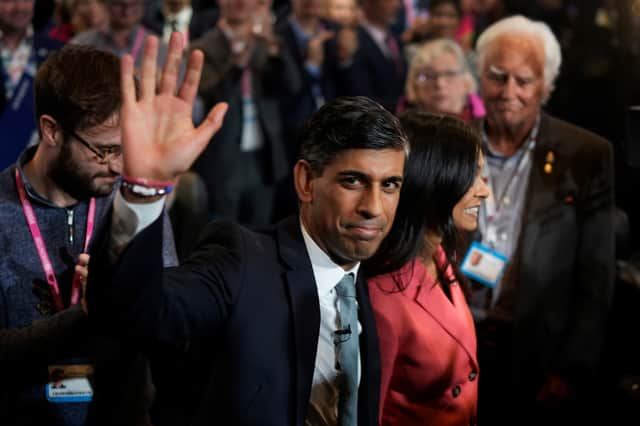A level reform: "Radical proposed changes could turn many of the younger generations against Sunak"


The prime minister announced in the Manchester conference today that he will introduce a new Advanced British Standard - a combination of A levels and T levels - to replace A Levels. This not only requires students to study some form of Maths and English until the age of 18 but also means they will have to study five subjects instead of three. While this may appear to be a step towards getting a more articulate and educated younger generation, it is actually an impulsive and inconsiderate decision - highlighting how out of touch Sunak is with the younger generation.
As a student currently doing A levels, I can say that these ‘reforms’ will not be supported by many of my peers. This model forces students to study subjects they were so eager to drop after finishing with their GCSEs. Although maths is undoubtedly an important subject, by no means should students be forced to study it until the age of 18. A study has shown that while 86% of jobs require simple addition and subtraction, only 5% of jobs require calculus – a topic learnt post 16. Therefore, it seems highly unnecessary that all students over the age of 16 need to study maths, when all the important ‘basics’ are covered in GCSEs. Lia Renju, an A level student at Skipton Girls High School, sums this up perfectly: ‘’Maths isn’t for everyone. It’s our education and our future so we should get the right to decide what we wish to study.’’ The government website also illustrates that the number of A level maths entries in 2023 was 90,845, higher than any other subject entry. That makes it pretty clear that there are enough people studying it already.
Advertisement
Hide AdAdvertisement
Hide AdWhen justifying these changes, Sunak claimed that we need to ‘’tackle a cultural sense that its okay to be bad at maths’’ and in April, he claimed that the country has an ‘’anti-maths mindset’’. However, it seems obvious that simply doing more maths will not change this. In fact, surely it’ll heighten students’ hatred of maths? The same goes for English – I’m sure some will feel resentment when being told to study English for another two years. Vicky Fox, assistant head at Skipton Girls’ High School. said: "It is really important that we have highly articulate and well-read students entering the workforce. And I can see why having a highly numerate population would be desirable, however I don’t know if making them study it for longer is going to make it right’." Joanne Roscoe, assistant head teacher, added that it was already ‘’challenging enough to encourage students to study Maths and English until the age of 16". I am sure the prime minister has no idea of the difficulty he - and the teachers left to actually make the changes - will face trying to force these two subjects onto teenagers as part of the new curriculum for an extra two years.
Another challenge that will have to be faced is tackling the shortage of maths teachers. Maths teachers are already in high demand as it is compulsory to study it until the age of 16. Notably also, the rate of maths teachers leaving the state funded sector in 2020 was 8.3% compared the average of other subjects which was 7.4%. The shortage of maths teachers is already a prominent issue that needs to be resolved, yet Sunak’s only way of solving this is to demand more maths to be taught? It just does not add up.
Sunak also plans to increase the time students spend in the classroom and wants them to spend at least 195 hours more with a teacher, creating ‘’the best education system in the western world’’. While the sentiment is nice, this proposal does not seem to take into account the stress that post-16 education already puts on teenagers across the country. Studying for A levels is already strenuous enough, let alone after adding more lesson hours into the equation. To me, these radical proposed changes could turn many of the younger generations against Sunak. A recent poll found that just 1% of 18 to 24 year olds plan to vote Conservative in the next election. Add in today's announcements and it makes the results of the impending election even more intriguing.
Comment Guidelines
National World encourages reader discussion on our stories. User feedback, insights and back-and-forth exchanges add a rich layer of context to reporting. Please review our Community Guidelines before commenting.
